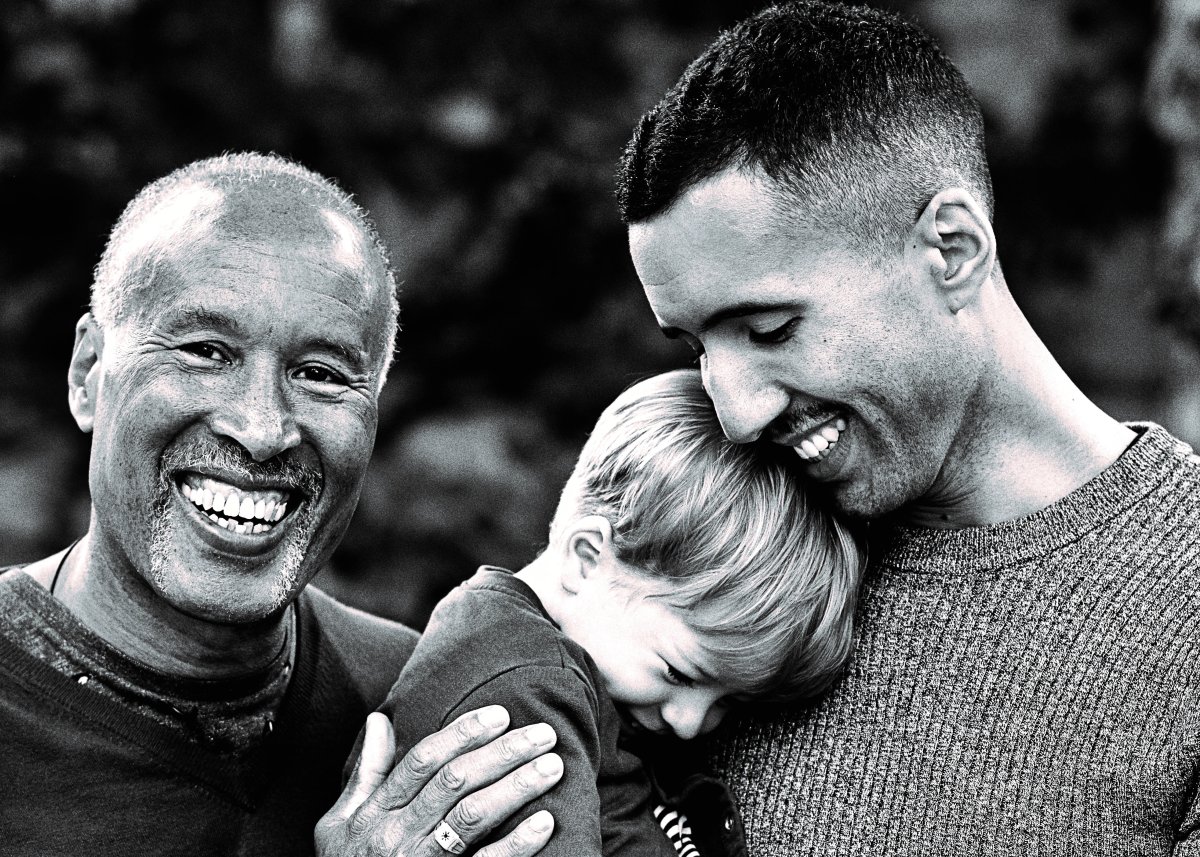Adam Anava can vividly recall the day he came to terms with his mental health challenges. He suffered a massive panic attack while on vacation in Miami. He was stuck in traffic, his heart began to race and he started to hyperventilate.

Anava felt as if there was no escape and was ready to ditch the car and run away, when one of his friends talked him down.
At that time, the father of three had been struggling with anxiety and depression for about eight months and hadn’t talked to many people about it.
But as he sat in the car on the side of the highway, his friend admitted to him that he also battled with mental illness and was able to work through it.
“I realized that I wasn’t broken, that other people have gone through this and have found ways to overcome it,” says Anava.
“Just talking about it and hearing myself say things that I had been trying to suppress gave me relief. I don’t know where I would be if I didn’t have that first conversation.”
It can be difficult for men to open up about mental health struggles, and some experts are worried that staying quiet may be contributing to higher rates of suicide among men.
In Canada, suicide is among the top 10 causes of death and rates are increasing.
According to the Canadian Association for Suicide Prevention, 10 people in Canada die by suicide every day, and men are three times more likely than women to die in this way.
Studies show that mental illness is the biggest risk factor for suicide, with 90 per cent of victims having a mental or addictive disorder.
However, suicide usually results from the interaction of multiple factors, including mental illness, major life stressors or lack of social support.
“Men need to prioritize their mental fitness just like they do their physical fitness,” Martin says.
Traditional masculine norms
“Suicide is an incredibly complex public health issue and there are many factors that contribute to it,” says Craig Martin, global director for mental health and suicide prevention at Movember Foundation.
“However, research has shown that some traditional masculine norms such as stoicism and self-reliance combined with increasing pressures, stress and social isolation can play a role in men not seeking help when they need it.”
Anava’s depression and anxiety were triggered by a traumatic event. The night before his first son turned one, his wife was in a car accident. A lot of stress followed.
“I started to cave under that pressure,” he says. “When you start losing control, it leaves you feeling a little helpless. It was a slippery slope from there.”
Anava started pulling away from his friends and declining invitations to social events. He missed out on activities with his family because he couldn’t stand the thought of being somewhere where he might have a panic attack.
“I missed out on a lot of big moments,” Anava says. “I went through a lot of guilt and shame as a parent.”
Social connections and mental health
Anava is not alone. People with mental illness often want to avoid socializing. However, spending time with friends and family can be one of the strongest antidotes for the disease.
“Research has highlighted that strong social connections have benefits for mental health and wellbeing and act as a protective factor against issues like depression,” Martin says.
He adds that having someone to talk to is an important factor.
“Men need to prioritize their mental fitness just like they do their physical fitness,” he says.
“Mental wellbeing is like a bank account. You need to make ongoing deposits by doing things like spending time with friends, exercising, resting, managing stress well, eating well and having courageous conversations about what’s really going on in your life.”
Men may not feel comfortable reaching out and talking about the challenges in their life, so Martin suggests trying to start the conversation as a friend. Ask, listen, encourage action and then check in a week or two later. Also make time to have meaningful conversations with friends — ask them how they’re really doing as it could be a lifesaving move, Martin says.
When Anava was young, he heard things like “man up” and “boys don’t cry” from his parents and sports coaches, but he’s dedicated to sending a different message to his sons.
He asks them how they’re feeling and what’s causing them to feel that way, and lets them know that it’s okay to experience a range of emotions and talk about them.
“The only reason I’ve been able to make progress is because I let down my guard and started talking about mental illness,” Anava says. “If I don’t open up, my kids won’t open up and the stigma won’t go away.”
In further support of the cause, Anava is growing a moustache for Movember to raise funds and awareness.
“We shouldn’t wait for struggles to find us. We should act now to try and establish support systems to deal with issues as they arise,” he writes in an Instagram post.
“Please help me in my efforts to raise awareness and funding to change the face of men’s health.”
For more information on how to have a meaningful conversation with a friend and stop men from dying too young click here.


